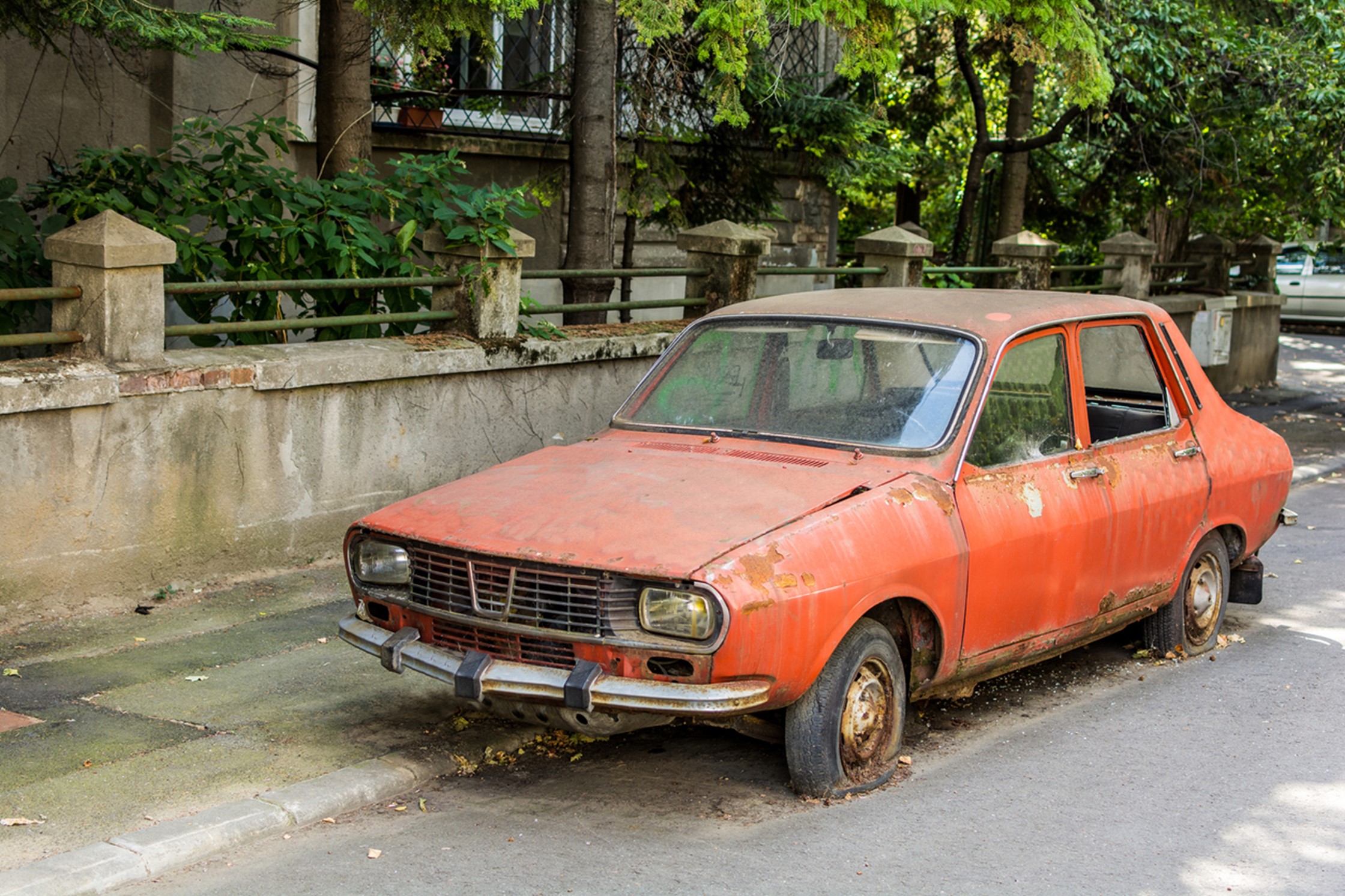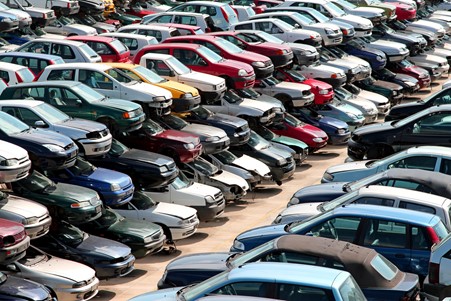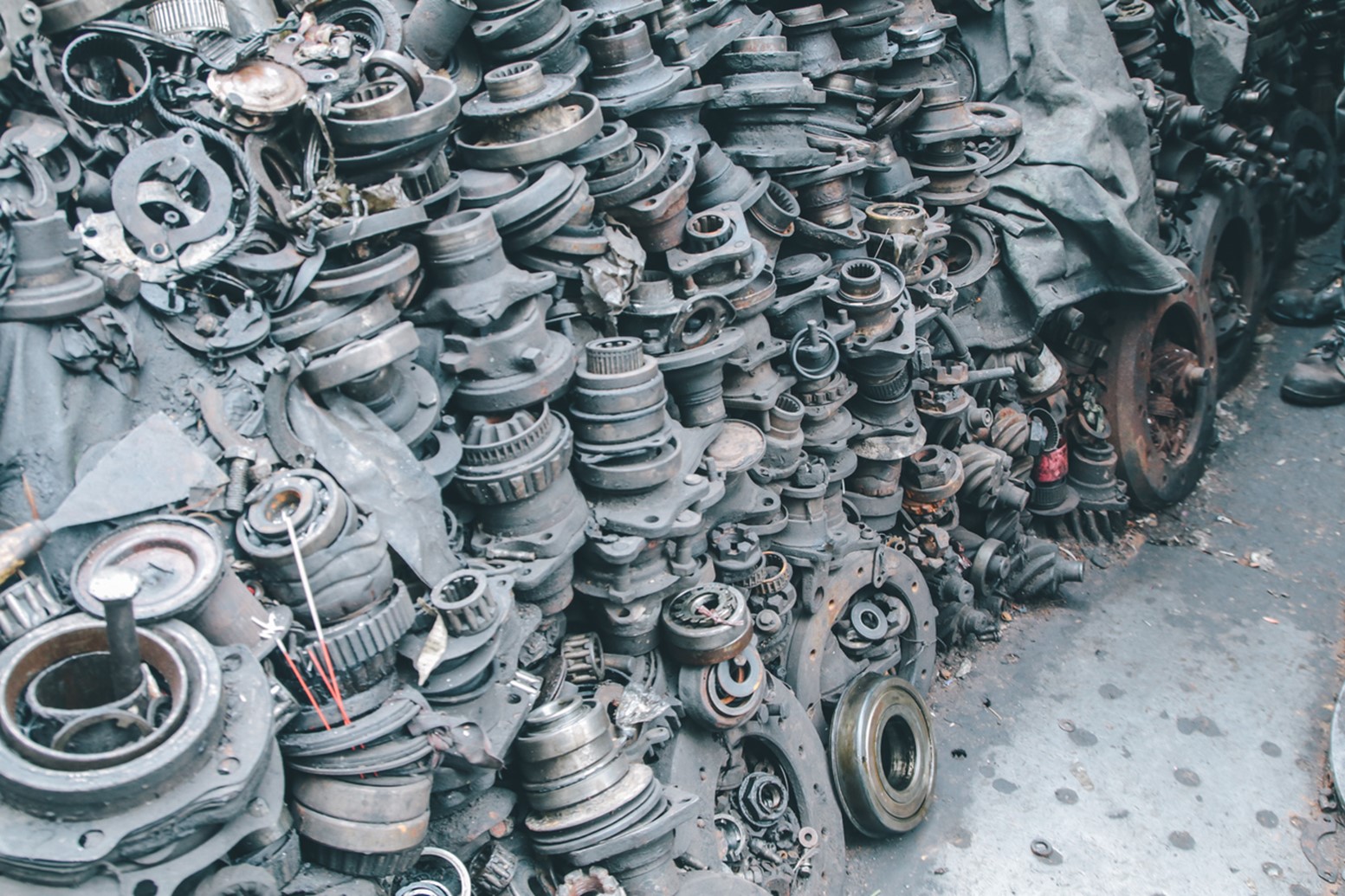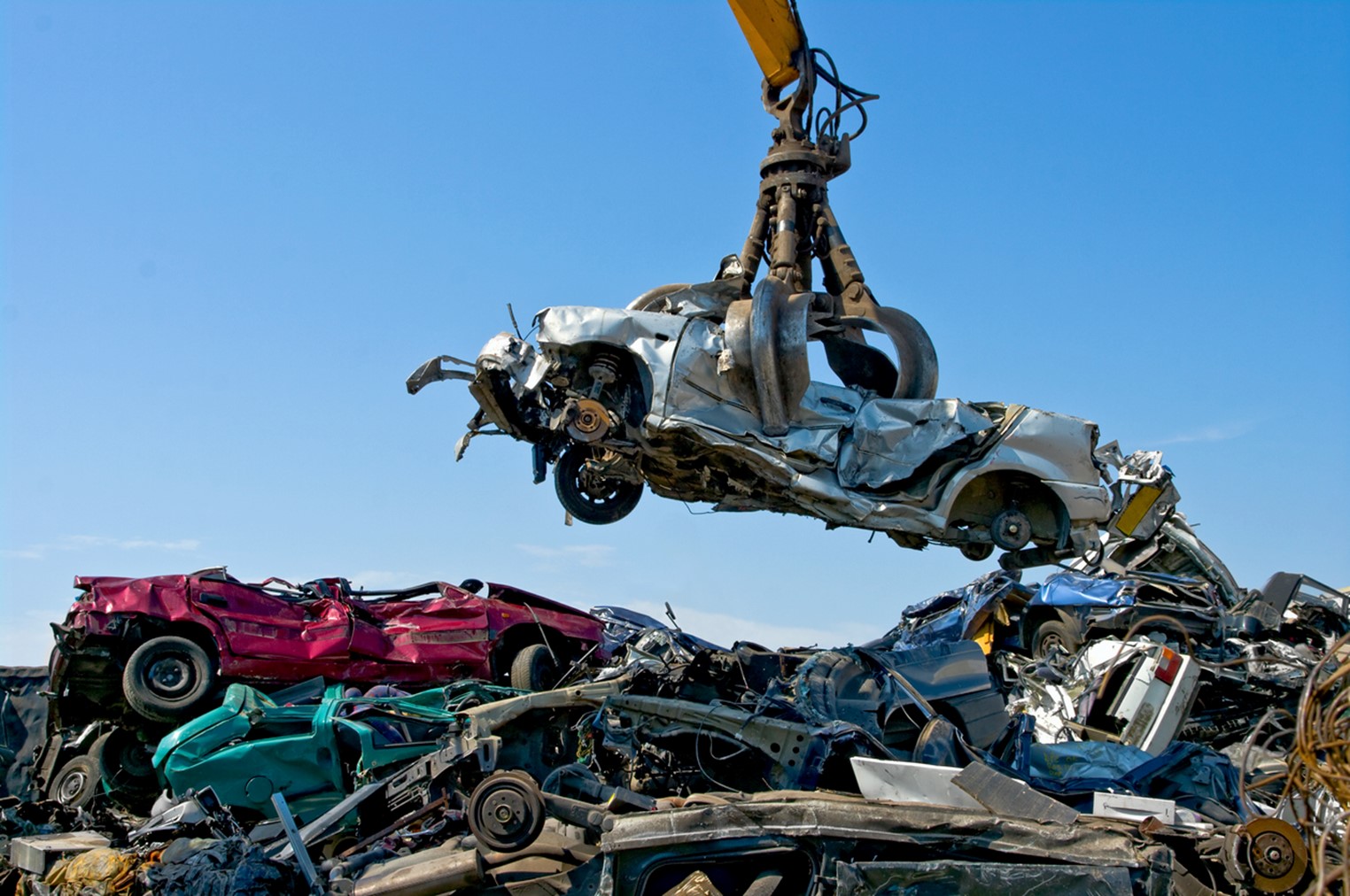We deal with all kinds of scrap metal recycling here at Morecambe Metals, with one of the bulkier domestic items being End-of-Life vehicles. The days of scrapped cars sitting around and leaking toxic fluids everywhere before being crushed into cubes and thrown onto landfills are long gone. These days, up to 95% of the material in scrapped vehicles is reused, recovered, or recycled by authorised treatment facilities.
End-of-life vehicles must be depolluted and dismantled correctly by an Authorised Treatment Facility like Morecambe Metals, so their parts can be recycled and used again. Today we’re going to look at the process of scrapping a car and find out what happens to vehicles once they reach the end of their life.
What is an End-of-Life Vehicle?
An End-of-Life Vehicle (ELV) is any vehicle that has come to the end of its useful life. There is no set definition for what makes a vehicle an ELV. Often, it will be the vehicle’s owner taking the decision that it is no longer economically viable to run the vehicle. ELV’s can be divided into two categories:
Natural ELVs
These vehicles have reached the end of their natural life due to wear and tear and are usually over ten years old. It will be the vehicle owner that decides the vehicle has reached the end of its life. Natural ELVs will almost always be depolluted and recycled for scrap metal.
Premature ELVs
This refers to vehicles that have reached the end of their life by unnatural causes such as a road traffic accident, fire, or vandalism. Premature ELVs are not necessarily scrapped and recycled but categorised by insurance companies and sold on as damaged-repairable salvage or dismantled for their working parts.
End-of-Life Vehicle Regulations
Scrapped vehicles generate millions of tonnes of waste every year. To manage this waste stream effectively, regulations have been brought in to ensure ELVs are being handled correctly and minimise the amount of waste created by ELVs.
Regulations introduced to the UK in 2003 require all ELVs to be depolluted before destruction. This must be performed by an Authorised Treatment Facility (ATF). Since 2007, the last owners of vehicles have been entitled to free disposel of their vehicles through an adequate network of disposal facilities.
ELV Depollution
Under UK regulations, all scrapped cars must be depolluted. Depollution removes hazardous components and ensures that no harmful toxins or chemicals are released into the atmosphere, water supply or food chain. During the depollution process, the following will be removed from the ELV:
- Tyres
- Lead-acid battery
- Wheels and lead balance weights
- LPG tank
- Airbags
- Seatbelt pre-tensioners
- Any oils and fluids
- Catalytic converter
- Oil filter
- Switches that contain mercury
Once the car has been depolluted, the hazardous components are documented and disposed of safely or sold if they can be re-used. A vacuum can be used to separate light materials such as foam, fabric and plastic for recycling. The remaining metal of the vehicle is shredded into small pieces so the ferrous metals can be quickly sorted using a magnet. Iron and steel account for roughly 65% of a vehicle’s weight and can be indefinitely recycled, so scrapped vehicles must be handled in this manner.
Certificate of Destruction
Once your vehicle has been recycled at an Authorised Treatment Facility, you’ll be issued with a Certificate of Destruction (CoD). This certificate declares that your car will never be driven on the road again and is a vital piece of paperwork. Without a Certificate of Destruction, you could still be liable for tax on the vehicle and incur penalties if the vehicle is involved in a road traffic offence. Only Authorised Treatment Facilities can issue Certificates of Destruction once the vehicle has been recycled – so before you hand over your vehicle, ensure you are dealing with a company that has the authority to issue the certificate legally.
Don’t Accept Cash for your Scrap Vehicle
In 2013 the UK government revised the law surrounding how payments can be made for scrap metal – including scrap vehicles. Section 12 of the Scrap Metal Dealers Act states that scrap metal dealers must purchase scrap metal using either cheque or electronic bank transfer only – meaning that paying cash for scrapped cars is illegal.
Following the Scrap Metal Dealers Act is an essential step in a scrap yard becoming an Authorised Treatment Facility that handles scrapped vehicles correctly in line with government and environmental regulations. If you are offered cash for your scrap vehicle, it is unlikely that you’re handing your vehicle over to a legitimate Authorised Treatment Facility. Whilst it may be tempting to hand your car over to someone who will give you cash, you’re dealing with someone who isn’t willing to follow the law, which can have serious repercussions. The vehicle may not be handled correctly, and as the registered owner, you may be liable for any legal issues that arise because of this.
Morecambe Metals is an Authorised Treatment Facility providing comprehensive vehicle scrapping services for end-of-life vehicles. We have a purpose-built depollution rig, allowing us to depollute and recycle vehicles in line with current legislation. We will always issue a Certificate of Destruction for passenger and light goods vehicles under 3.5 tonnes. Our depollution process ensures that all salvageable parts of ELVs are either recycled or reused, and we work hard to ensure our methods are as eco-friendly as possible.
Have you been asking yourself, where can I scrap my car? Contact us at Morecambe Metals today for more information about our ecological approach to end-of-life vehicle recycling or to find out more about any of our scrap metal recycling services





